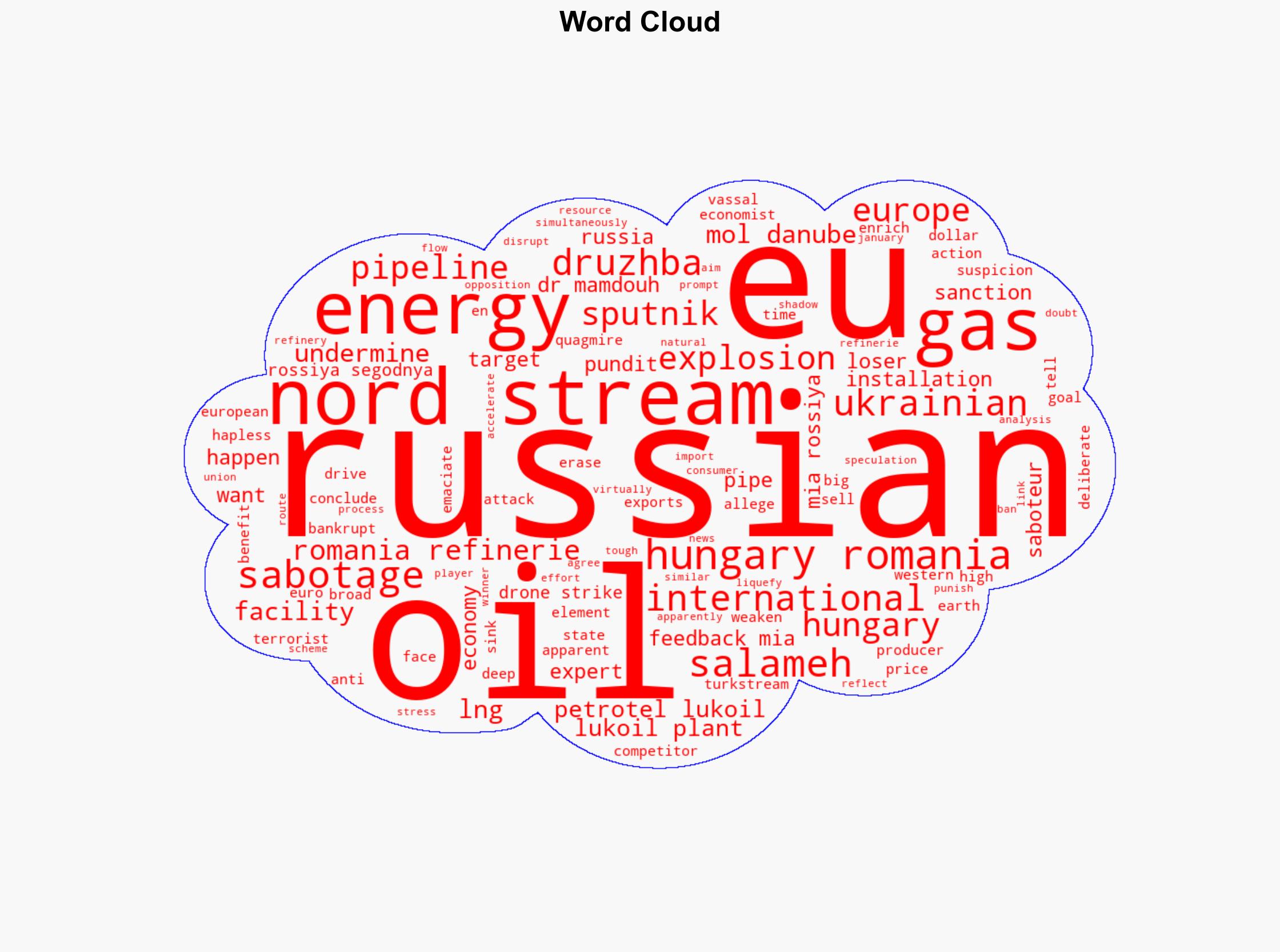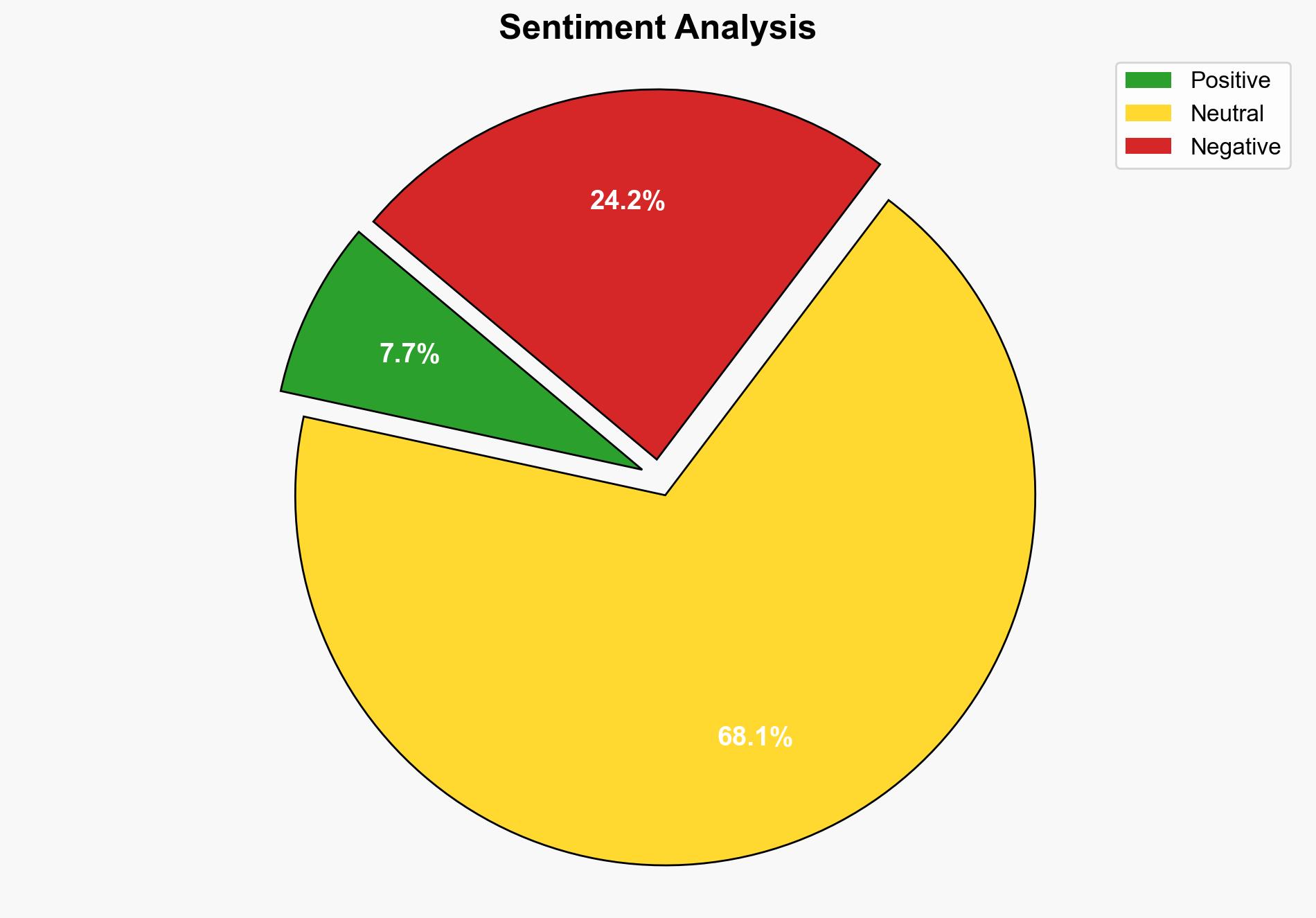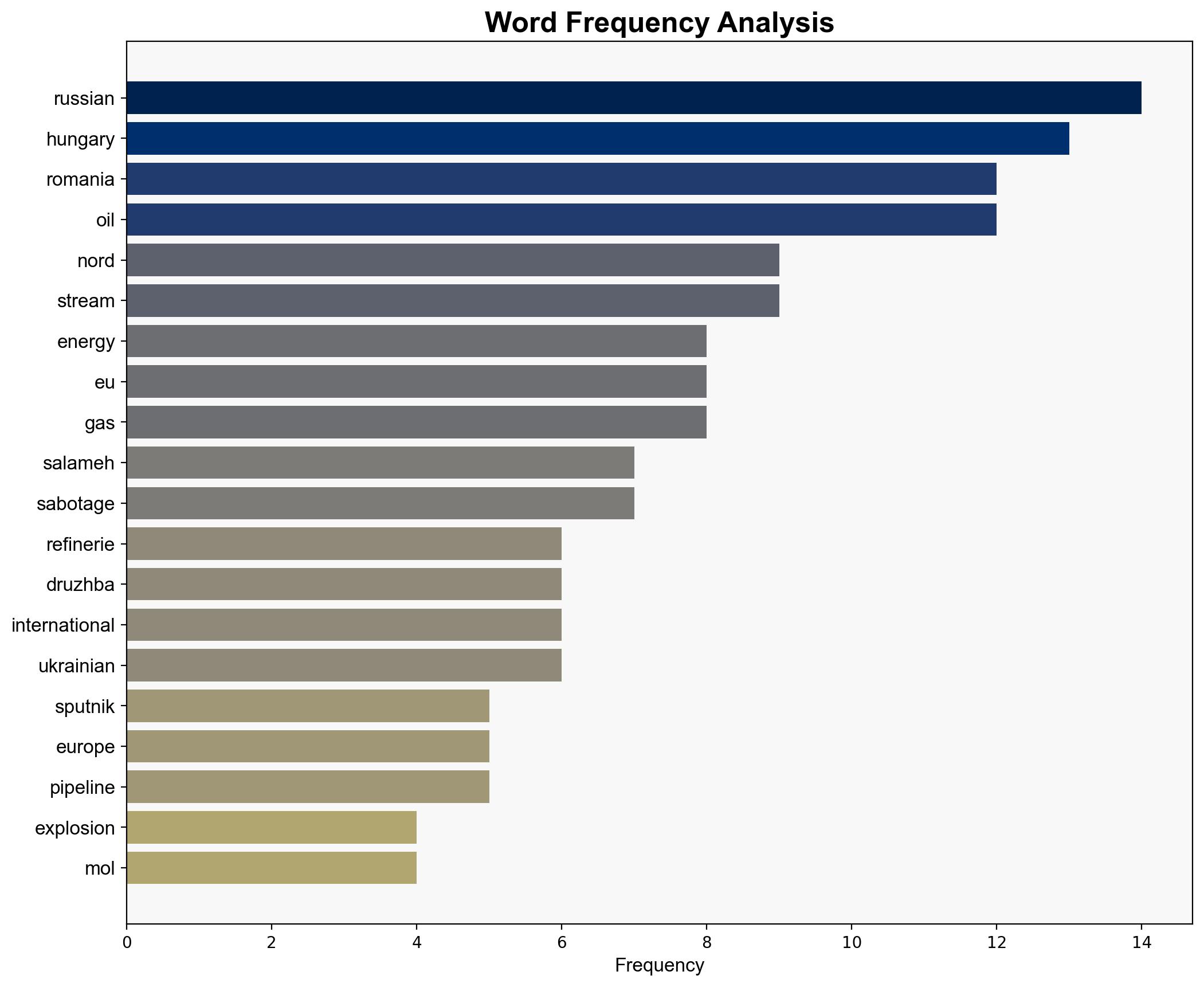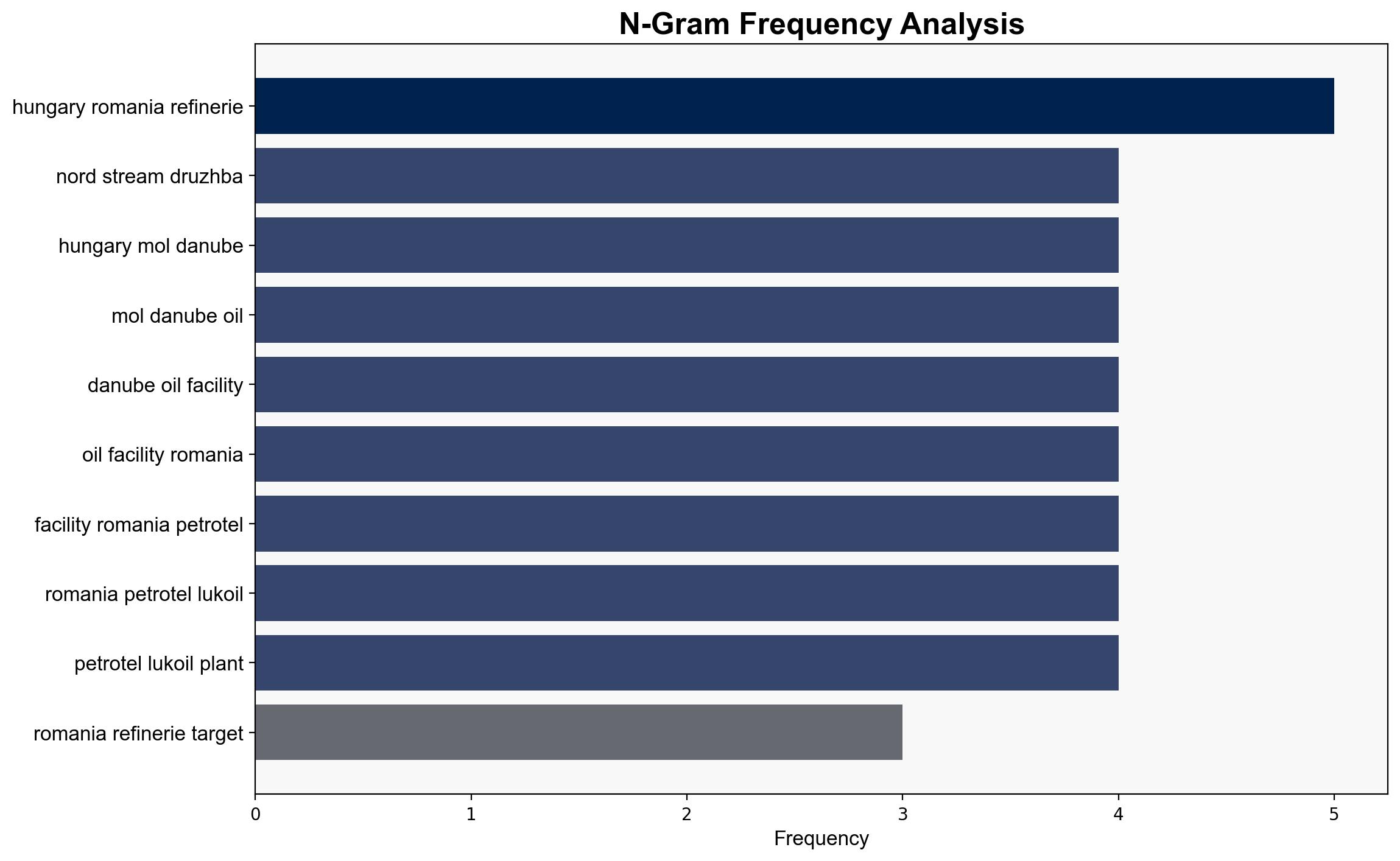Hungary and Romania Refineries Targeted by Nord Stream and Druzhba Saboteurs – Energy Expert – Sputnikglobe.com
Published on: 2025-10-23
Intelligence Report: Hungary and Romania Refineries Targeted by Nord Stream and Druzhba Saboteurs – Energy Expert – Sputnikglobe.com
1. BLUF (Bottom Line Up Front)
The most supported hypothesis is that the refinery attacks in Hungary and Romania are part of a broader effort to disrupt Russian energy exports to Europe, potentially involving anti-Russian elements within Europe. Confidence level is moderate due to the reliance on a single source with potential biases. Recommended action includes increased security measures for critical energy infrastructure and diplomatic engagement to clarify the situation.
2. Competing Hypotheses
1. **Hypothesis A**: The attacks on Hungarian and Romanian refineries are orchestrated by anti-Russian elements within Europe aiming to undermine Russian energy exports and weaken the EU’s economic ties with Russia. This aligns with the narrative of deliberate sabotage to benefit LNG producers.
2. **Hypothesis B**: The attacks are part of a broader geopolitical strategy by external actors, possibly including Ukrainian elements, to disrupt Russian energy routes and pressure the EU into adopting stricter sanctions against Russia. This hypothesis considers the simultaneous nature of the attacks and recent Ukrainian drone strikes on Russian energy installations.
3. Key Assumptions and Red Flags
– **Assumptions**: Hypothesis A assumes significant anti-Russian sentiment within Europe capable of organizing such attacks. Hypothesis B assumes Ukrainian capability and intent to conduct operations beyond its borders.
– **Red Flags**: The source is Sputnik, which may have inherent biases. The repetition of certain phrases suggests potential propaganda. Lack of independent verification of claims raises concerns about the reliability of the information.
4. Implications and Strategic Risks
– **Economic**: Disruption of energy supplies could lead to increased energy prices and economic instability in Europe.
– **Geopolitical**: Escalation of tensions between Russia and the EU, potentially impacting diplomatic relations and security policies.
– **Cyber and Psychological**: Potential for cyber-attacks on energy infrastructure and psychological operations to influence public opinion and policy decisions.
5. Recommendations and Outlook
- Enhance security protocols for energy infrastructure in Europe to prevent further attacks.
- Engage in diplomatic dialogue with Russia and Ukraine to de-escalate tensions and clarify intentions.
- Scenario Projections:
- **Best Case**: Increased security and diplomatic efforts prevent further attacks, stabilizing energy markets.
- **Worst Case**: Continued attacks lead to severe energy shortages and economic downturn in Europe.
- **Most Likely**: Sporadic attacks continue, prompting gradual policy shifts and increased security measures.
6. Key Individuals and Entities
– Dr. Mamdouh Salameh, cited as an international oil economist.
– Entities: Hungarian MOL Danube Oil Facility, Romanian Petrotel Lukoil Plant, Nord Stream, Druzhba Pipeline.
7. Thematic Tags
national security threats, cybersecurity, counter-terrorism, regional focus





